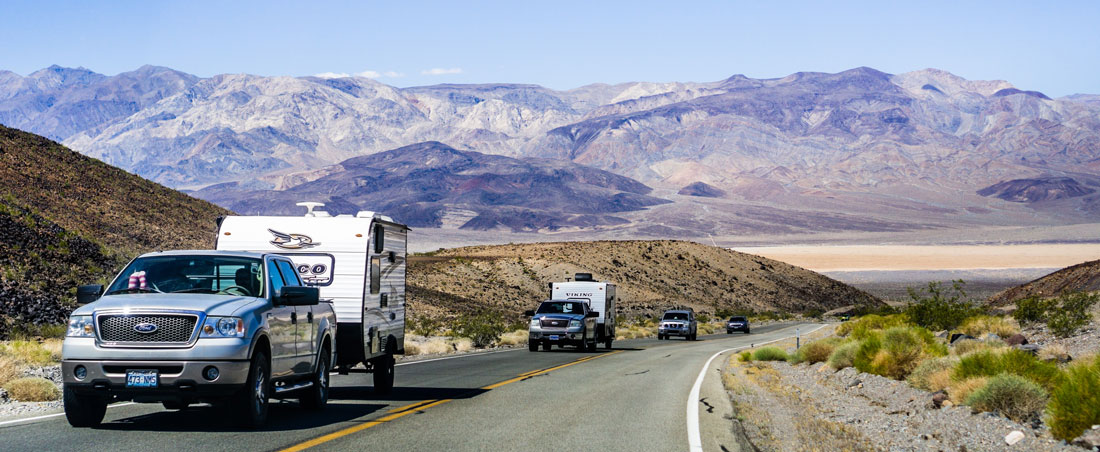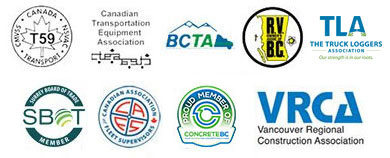When it comes to towing an RV Trailer, safety is paramount. Beyond mitigating sway by choosing a proper stabilizer, and buying the best brake controller for your vehicle, determining what size trailer you can tow is perhaps the most critical component in maximizing your safety on the open road. We are going to give you the basics on how to match your truck to your trailer.
Weight Ratings: GCWR and GVWR
So what size RV trailer can you tow? It all comes down to weight.Typically found on a federal compliance label, the following weight ratings all play an important role in helping you determine what size trailer your vehicle you can safely tow.
- GCWR or Gross Combined Weight Rating is the overall combined weight of both the truck and trailer. Typically, only vehicles that tow or are expected to tow will have a GCWR.
- GVWR or Gross Vehicle Weight Rating is the maximum operating weight of the vehicle, or the distinct and maximum weight of each vehicle when loaded with “stuff”. Every vehicle in operation will have a GVWR.
Determining Maximum Trailer Weight

It’s important to note that ratings provided on federal compliance labels apply to base models only. To get the most accurate maximum loaded trailer weight, ensure that you account for added vehicle weigh. You can stop by any weigh station, recycling center or grainery to determine the true weight of your truck. Additional factors that affect weight in your truck or trailer include, but are no limited to:
- Option weight (e.g. power seats)
- Passengers
- Hitch
- Pin or tongue weight
- Cargo (e.g. coolers, bikes, firewood, luggage, etc)
Then, once you’ve determined your “true truck weight”, subtract that number from the GCWR originally found on your truck’s federal compliance label and you will get the maximum weight of trailer that you can tow with your towing vehicle.
Other Important Weight Ratings
There are other important weight ratings to consider when matching your towing vehicle to a trailer. These include:
- Fifth Wheel Hitch
- Brake controller
- Sway Controller
These critical components of trailering all come with their unique and distinct weight maximums that should be considered in the overall GCWR.
Key Takeaways
In summary, here are the four critical steps in determining whether or not your towing vehicle can safely tow a trailer.
- Look at the Federal Compliance Label – Get information about your truck and trailer from the federal compliance labels on both vehicles. Note GCWR, GVWR and GAWR
- Look at your Towing or Trailering Guide – Look closely at your tow vehicle’s towing or trailering guide to determine the GCWR and trailer’s maximum loaded trailer weight
- Get the True Weight – Determine your towing vehicle’s true weight by taking it to a weigh station or recycling center with all desired cargo inside and all extra options accounted for.
- Other Factors that Affect Weight – The fifth wheel hitch, brake controller and sway controller all play a role in both weight and safety.
Keep This In Mind – Remember that as weight is added to your towing vehicle, the weight of the trailer must decrease to stay within the safety limit.
Finally, remember that weight ratings are safety ratings. Always plan ahead to ensure that you stay within the recommended weight ratings. Doing so will ensure a smooth ride for you and all of your passengers and others on the road.
RV Safety Is Priority at VanAxle
At VanAxle, RV safety is our priority. Whether you need help choosing a tow bar or would like consultation on trailer weight safety relative to your towing vehicle, we’re here to help. Stop in soon or contact us at 604-882-5112.









